Her fan was Hitler himself. Olga Chekhova: state actress Reich and Soviet intelligence officer?
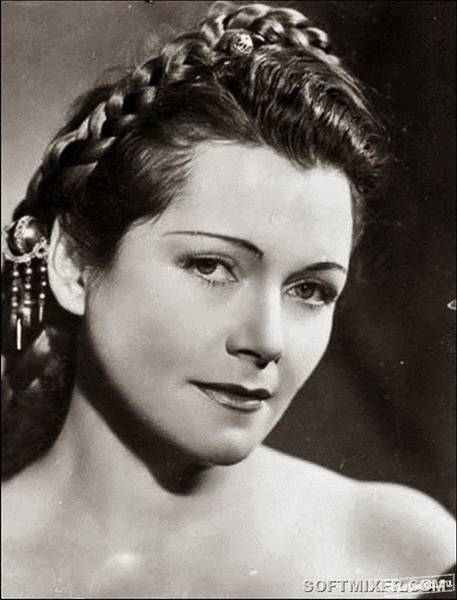
Olga Chekhova was born in a German family. Her grandfather, Leonard Knipper, a Prussian citizen, worked as a process engineer at the Kokman Distillery (now the territory of Udmurtia). He married Anna Ivanovna Zaltsa (1850-1919) - a famous chamber singer. His father, Konstantin Leonardovich Knipper (1866-1924), worked as an engineer in the field of railway construction. His family had three children - the daughters of Ada and Olga and the son Leo. Olga was born in Alexandropol, Erivan Province (now Gyumri, Armenia). When she grew up, she became very interested in theater. Unlike many other families, where such siblings were not welcomed, parents supported Olga. They sent her to Moscow, where Olga Leonardovna Knipper-Chekhova (1868-1959) lived in Konstantin Knipper's sister, who followed in her mother’s footsteps and became a famous dramatic actress. Olga Knipper-Chekhov was the wife of Anton Pavlovich Chekhov.
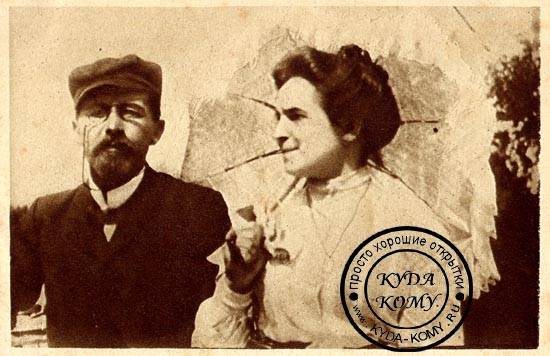
Influenced by aunt Olga Knipper entered the studio at the Art Theater. However, very quickly, the girl turned her attention from studying in the studio to the young nephew of Anton Pavlovich Chekhov, Mikhail Chekhov - at that time a very promising actor. She married Mikhail Chekhov and after a year and a half, Ada's daughter was born in the newlyweds family (later she also became a famous actress). But the marriage of lovers did not last long - two years after the birth of their daughter, Olga Chekhova and Mikhail Chekhov divorced. Olga continued to act as an actress. In the 1920 year, in a very difficult time for the country and its citizens, Olga, like many other members of the intelligentsia, chose to emigrate. She went to Germany. It was in emigration that the amazing talent of this amazing woman was revealed. Already in 1921, she made her debut in the German film “Vogeled Castle”, and in 1929 she herself acted as a director, shooting the film “The Fool of Her Love”. The main role in it, by the way, was played by her first husband, Mikhail Chekhov, who by this time had also managed to emigrate from Russia to Germany.
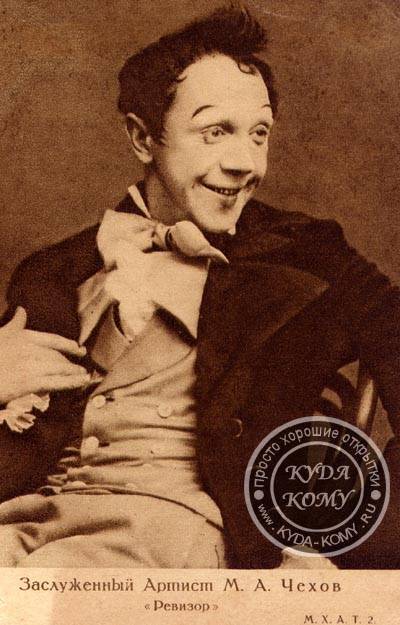
Beautiful and talented actress of German-Russian origin in Germany gained national fame. She began to invite "in the light", granted German citizenship. Olga Chekhova felt fine after coming to power in 1933 of the National Socialist Workers Party of Germany. Key figures of the Nazi political and military elite were admirers of her talent, which ensured Olga Chekhova a comfortable life and a certain influence. In 1936, Olga Chekhova married the Belgian Marcel Robins - a fairly large industrialist, but the second marriage did not become happy. Two years later, Robins and Chekhov broke up. After that, Olga fully focused on stage activities, becoming one of the most famous film actresses of the Third Reich era.
In Germany, Olga Chekhova spent the whole war. 27 April 1945, the Soviet military administration detained Olga Chekhova. The actress was arrested and delivered a special flight to Moscow. Olga Chekhova spent only two months in the capital of the USSR. It seemed that the favorite actress of Hitler and other leaders of the Reich should wait at least a long sentence in the camps - ten years, no less. But for some reason, the Soviet authorities turned out to be unusually humane towards Olga Chekhova. Two months later she was released, moreover, she was sent back to Berlin by plane. Actually, these two months in Moscow were the only “punishment” of Olga Chekhova for contacting the German leadership.
Subsequently story the extraordinary luck of the Russian-German actress was the reason for the emergence of all sorts of rumors about the involvement of Olga Chekhova to work in Soviet foreign intelligence. They even remembered that in 1923, when Olga Chekhova was already living in Germany, she was visited by Larisa Reisner, a “Valkyrie of the Russian Revolution,” who had been in Germany under the guise of a Red Star and Izvestia correspondent. Allegedly, this visit could be the beginning of a long “romance” of an actress with Soviet foreign intelligence. Like it or not, today no one will say. In any case, it is possible that attempts to get in touch with Chekhova were made already in 1920-s and, especially, in 1930-s, when the actress entered the circle of the most famous and sought-after German pop artists. After all, Chekhov personally communicated with the Nazi leaders, there are photos where Olga is sitting next to the Fuhrer himself.
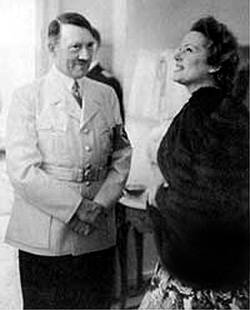
The fact that Olga Chekhova was involved in cooperation with Soviet intelligence was later recalled by General Pavel Sudoplatov, who left a very interesting memoir. The search for new agents in Germany became particularly relevant after the repression of 1937 was a serious blow to the operational and undercover staff of Soviet intelligence. In Germany, there were a number of people who interested Soviet intelligence in the possibilities of their entry into the Nazi elite. These were, for example, Prince Janusz Radziwill and actress Olga Chekhova. Sudoplatov claims that Chekhov was added to the Soviet intelligence contacts in the 1940 year - on the basis of trust relationships. The actress became interested in Soviet intelligence in that she had direct access to Reichsmarshal Hermann Goering, the commander-in-chief of the Luftwaffe and one of Hitler’s closest handy. Goering was well known as a man who wanted to show his involvement in the world of art, a lover of the "good life", so it was not surprising that he was friends with representatives of the German bohemian environment. Later, the importance of Olga Chekhova for intelligence increased even more. This happened because the actress became close to Eva Braun - the Fuhrer's many years mistress.
Later, rumors spread that Adolf Hitler was a long-time, since 1920, and an ardent admirer of Chekhova’s talent. Allegedly, even Eve Brown, he picked up his mistress on the distant similarity with the subject of adoration. Whatever it was, but it is known that it was Hitler’s patronage that allowed Olga Chekhova to easily refuse the most savory offers from top military officials of the German army and security forces. And they did not dare to harm the actress, because they knew about the disposition that she was able to conquer from Hitler. The Fuhrer knowingly gave Olga Chekhova, an actress with German origins and a Russian name, the high title of "State Actress of the Third Reich." This testified to a deep disposition to this woman, her beauty and acting talent.
Of course, Olga Chekhova used the Fuhrer's sympathies in her own interests. Hitler sent her presents every Christmas, and she, in turn, asked Adolph to help if it was related to some close acquaintances. It is known that several actors of Jewish origin were saved from persecution thanks to the personal request of Olga Chekhova and the subsequent condescension of Hitler.
The proximity to Hitler allowed Chekhova to gain access to the most reliable information about the all-powerful leader of the Third Reich. Of course, Chekhov was hardly aware of the exact military plans, but in war conditions any information of a “private” nature was of particular importance - for example, about Adolf Hitler’s health, permutations and “layouts” in the Nazi leadership. Chekhov could receive all this information in private conversations with Eva Braun and from observations of the Fuhrer's entourage. Information on the state of affairs in Berlin was transmitted to the curators and then entered Moscow. General Pavel Sudoplatov recalled that Soviet intelligence allegedly even tried to involve Olga Chekhov in the preparation of the assassination attempt on Adolf Hitler. But then Stalin himself allegedly refused plans to eliminate the Fuhrer, because he feared that if Hitler were killed, his successors would make peace with Great Britain and the USA - and then the Nazi regime would stay in power. This possibility did exist, because, as we remember, the British authorities for many years conducted secret negotiations with individual members of the Nazi military-political elite - from Hess to Canaris.
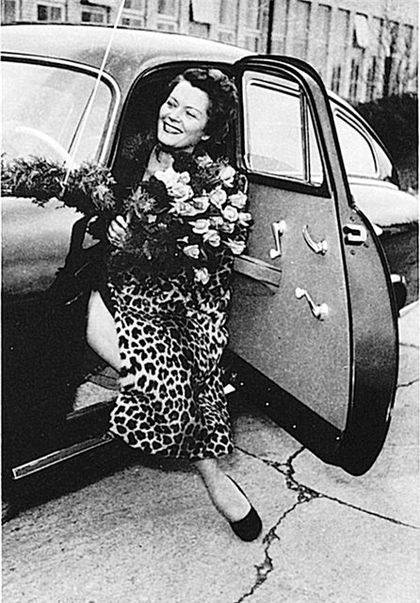 The arrest of Olga Chekhova in April 1945 and her sending to Moscow were more for pro forma. Pavel Sudoplatov wrote about this period in the life of a famous actress that Chekhov lived in the capital in the safe house of the “organs”. Beria personally met her, who then handed her over to Abakumov, who became the new minister of state security. During her two-month stay in Moscow, Olga Chekhova was questioned by the highest officials of the Soviet special services about how the Nazi political elite lived and behaved. Since Chekhov was more aware of the features and nuances of cultural life in Nazi Berlin.
The arrest of Olga Chekhova in April 1945 and her sending to Moscow were more for pro forma. Pavel Sudoplatov wrote about this period in the life of a famous actress that Chekhov lived in the capital in the safe house of the “organs”. Beria personally met her, who then handed her over to Abakumov, who became the new minister of state security. During her two-month stay in Moscow, Olga Chekhova was questioned by the highest officials of the Soviet special services about how the Nazi political elite lived and behaved. Since Chekhov was more aware of the features and nuances of cultural life in Nazi Berlin. First of all, the leaders of the Soviet secret services were interested in the “decomposition” of the Nazi elite on the issue of cultural policy, especially the rivalry between Joseph Goebbels and Hermann Goering - two political heavyweights claiming control over the country's cultural policy. Also, the Soviet counterintelligence was very interested in the mysterious disappearance of Martin Borman during the capture of Berlin and possible conjectures regarding his fate. They were interested in Chekhova and personal impressions of Hitler, Goering and Goebbels as people. Apparently, this information the Soviet leadership then hoped to use during the trials of Nazi war criminals.
According to Sudoplatov, Chekhov maintained personal correspondence with Minister of State Security Abakumov until 1951, i.e. in fact, until the arrest of this prominent figure in the special services. However, in addition to the memoirs of Pavel Sudoplatov, as well as the memoirs of Sergo Beria, the son of Lavrentiy Pavlovich Beria, and several other sources, there is no documentary evidence of the cooperation of Olga Chekhova with Soviet foreign intelligence. But then the Western media already began to argue that the famous German actress was not just so lively burst from Moscow in the spring of the victorious 1945 of the year. Olga Chekhov was almost openly accused of collaborating with Soviet intelligence. But she continued her career as an actress and tried not to interfere in political life.
By the way, she already in 1949 year moved from the Soviet occupation zone in East Berlin to West Berlin, where the situation was more free. Chekhova continued to realize herself as a theater actress, but in 1949, after moving to West Berlin, she began to star in films. In 1950 from West Berlin, Olga Chekhova moved to Munich, the very city where the Nazi movement was born. For twenty-five years, she played in 22 films, most of which were shot in 1950-s. In 1952, Olga Chekhova published her own memories - “I am not silent about anything!”. The second part of the memories, “My watch is different,” was released already in 1973 year. In an effort to provide additional sources of livelihood, Olga Chekhova, in 1955, opened the cosmetics company Olga Chekhova in Munich. Later its branches appeared in West Berlin and Milan.
28 January 1966 was a misfortune in the family of Olga Chekhova. At the airport of Bremen, while trying to enter the second round, the plane crashed, carrying Ada Chekhova (1916-1966) - Olga Konstantinovna Chekhova's daughter. She was also an actress, like her mother, but mostly theatrical. Ada Chekhova, who was also named Olga according to the documents, has two children left - Vera and Misha. They were raised by a grandmother, since she managed to survive her daughter by fifteen years.
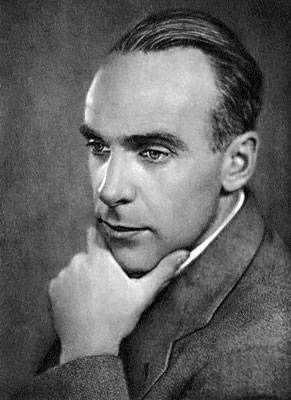
Olga Chekhova’s long and interesting life ended on March 9 of the year 1980. At the age of 82 for years, a famous actress died from brain cancer and found eternal shelter at the Obermenzing cemetery in Munich. Most of Olga Chekhova’s life, from 22 to 82 years, was spent in Germany. But, nevertheless, the actress continued to sincerely love her native country, Russia. She continued to correspond with her brother Leo Knipper (1922-1898) who had returned to 1974 in the Soviet Union - also a talented person who also enjoyed the patronage of the “strong man” - Joseph Stalin. Lev Knipper became the winner of the Stalin Prize of the USSR, repressions were bypassed by him, although in his youth Knipper fought in the army of General Baron Wrangel and with it was evacuated, but then returned to the Soviet Union. They say that Lev Knipper was also an agent of the NKVD, and it was through him that Olga Chekhova kept in touch with the “center” - Lubyanka.
The story of Olga Chekhova today reads like a fascinating detective story, in which there is a place for spying passions, great art, love, and friendship with the most famous people of the twentieth century. But was Olga Konstantinovna really a Soviet intelligence officer - a question, the only true answer to which is unlikely to be found. And is it worth it?
Information